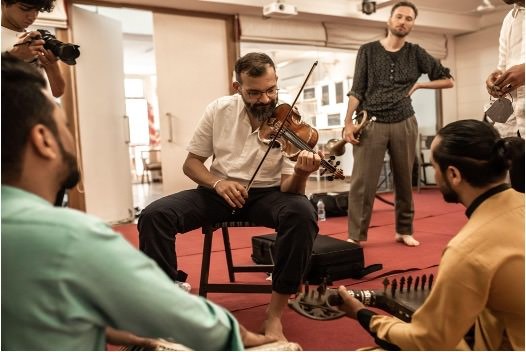

Photo by Abdul Jalil.

Providing professional perspectives for displaced Afghan cultural workers
What are perspectives of cultural cooperation with Afghanistan and what are key considerations for supporting displaced Afghan cultural workers?


Photo by Abdul Jalil.

These questions guided the online Knowledge Sharing Workshop on “Providing professional perspectives for displaced Afghan cultural workers”, co-organised with Goethe-Institut and ifa on 23 May 2022.
The responsibility for cultural institutes to continue to be able to support cultural workers who find themselves at risk in or displaced from their home country will continue to increase in a global context where authoritarian tendencies are growing. The case of Afghanistan continues to present an urgent crisis situation for cultural relations work. So far, there is no real EU-wide strategy on dealing with it, and especially on how to support cultural workers in exile following such a situation as the Taliban take over in summer 2021.
As the displacement risks being long term for many, the workshop intended to encourage EUNIC members to develop programmes to support Afghan cultural actors and artists in exile or diaspora, as well as to consider the position of those remaining in the country, and to exchange on individual initiatives already undertaken by organisations both within and beyond the EUNIC network. The workshop also explored the question of what learnings from these initiatives could be transferred to similar crisis situations in the future where quick reaction is needed, such as the current war in Ukraine.
Building on EUNIC’s previous Knowledge Sharing Workshops, research papers and advocacy on the topic of cultural relations in fragile contexts and artistic freedom, the main objective of the workshop was to share information on cultural relations strategies to support cultural workers in exile from fragile contexts and to exchange thoughts on possible European (re-)actions to similar situations in the future. More specifically, the aim of the workshop was to raise awareness of the opportunities, approaches and learnings from initiatives providing professional opportunities and perspectives for those displaced following the events of summer 2021 in Afghanistan.
Following a keynote by Mr Rahraw Omarzad, representatives from ICORN, UNESCO, Martin Roth-Initiative and Goethe-Institut shared insights and experiences from a variety of projects and programmes in Europe, and countries neighbouring Afghanistan such as Pakistan and India. Participants had the opportunity to actively engage with the speakers and to share their own experiences, and information about current and foreseen actions of their organisations in small discussion groups.
The workshop addressed colleagues from EUNIC members’ headquarters actively involved in and working on concrete actions with Afghan cultural workers in exile or within the country, as well as colleagues working on similar situations such as the war in Ukraine. Colleagues working in EU member country offices and EUNIC clusters in countries where there are significant numbers of Afghan diaspora were also present.
Find the summary of the presentations and discussions in the full workshop report here.
